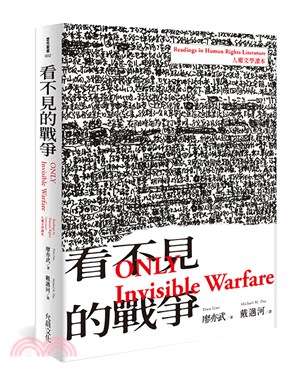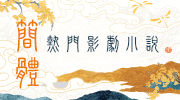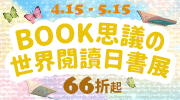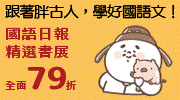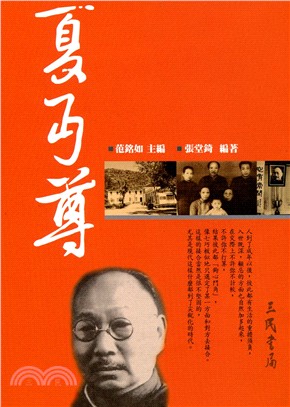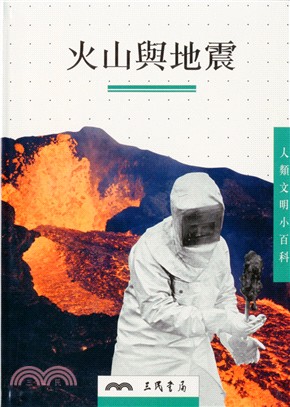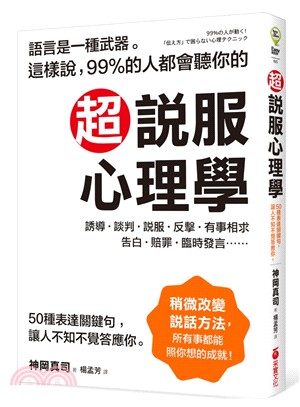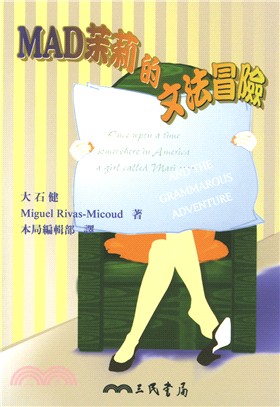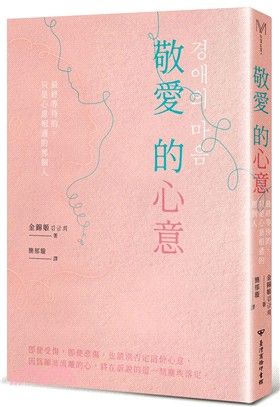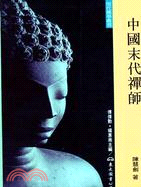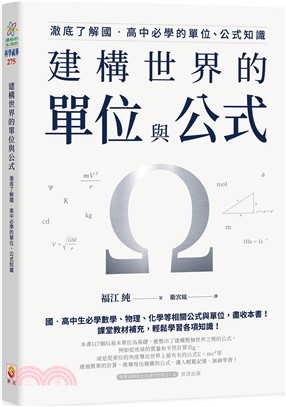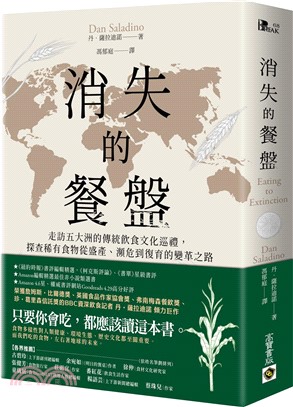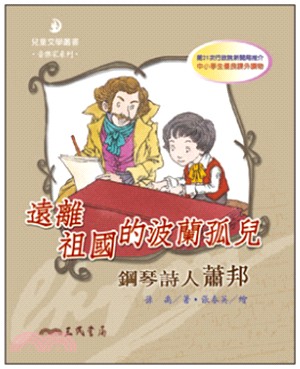相關商品
商品簡介
作者簡介
序
目次
書摘/試閱
商品簡介
我預言習近平必將下臺,因為他主導的上海封城對中國經濟的打擊是致命的――上海封城是武漢封城的延續,連封城的時間和手段都一模一樣,而上海人口2400多萬,是武漢人口的三倍。另外,習近平選擇支持和慫恿普京侵略烏克蘭,也讓中國和俄羅斯一樣陷入孤立,國際形象徹底破產。
如果我的預言未能兌現,習近平沒下臺,而是無限期登基稱帝,那麼中共也同樣陷入危機,並且再沒機會在無底懸崖邊緊急煞車。在毛澤東的閉關鎖國終結後,鄧小平為挽救共產獨裁體制,重拾被一九八九天安門屠殺所否決的統治合法性,而推行並實施數載的最高權力相互制衡,將被徹底打破。歷史無數次地論證:黑暗到了極致,光明才會來臨。
而黑暗與光明之間,是十四億人沉淪其中的地獄。狹小的臺灣與龐大的中國隔海相鄰,將會如香港那樣,被地獄之火延燒和侵吞嗎?――絕不!――這應該是享有民主和自由的所有臺灣人的回答。
――引自美國Nikkei Asia駐德記者Jens Kastner對廖亦武的採訪
如果我的預言未能兌現,習近平沒下臺,而是無限期登基稱帝,那麼中共也同樣陷入危機,並且再沒機會在無底懸崖邊緊急煞車。在毛澤東的閉關鎖國終結後,鄧小平為挽救共產獨裁體制,重拾被一九八九天安門屠殺所否決的統治合法性,而推行並實施數載的最高權力相互制衡,將被徹底打破。歷史無數次地論證:黑暗到了極致,光明才會來臨。
而黑暗與光明之間,是十四億人沉淪其中的地獄。狹小的臺灣與龐大的中國隔海相鄰,將會如香港那樣,被地獄之火延燒和侵吞嗎?――絕不!――這應該是享有民主和自由的所有臺灣人的回答。
――引自美國Nikkei Asia駐德記者Jens Kastner對廖亦武的採訪
作者簡介
廖亦武,1958年8月生於四川鹽亭,天安門大屠殺主要見證人之一,政治犯群體中最為突出的詩人、作家、音樂家,也是西方公認的中國監獄文學開拓者。
因在1989年6月4日凌晨,與加拿大漢學家 Michael Martin Day 一起創作並製作《大屠殺》錄音磁帶,並傳播到20多個城市,以及組織拍攝詩歌電影《安魂》而被捕,判刑四年,受盡折磨,曾在獄中自殺兩次。出獄後長期從事底層故事採集和地下文學創作,并通過「二渠道」出版了被中宣部和公安部聯合查禁的《沉淪的聖殿》《中國底層訪談錄》。
2007年,紐約經紀人彼得•伯恩斯坦在《巴黎評論》看到黃文翻譯的《底層》片段,立即取得全球版權。經數家出版社競爭,2008年5月該書英文版The Corpse Walker: Real Life Stories: China From the Bottom Up由蘭登書店出版,令廖亦武在西方一夜成名。彼得•伯恩斯坦評價道:「廖亦武不僅是中國當代作家中最優秀、最具挑戰性和創新的一位,更是一位勇敢大膽的有著獨立意志的人,任何時候都會捍衛自己自由言論和自由思考的權利(Liao is not only a fine writer but a courageous and brave and individual willing to stand up at every turn for his right to speak and think freely.)。」
可在中國,他始終被嚴密監控,被警察多次抄家並監禁,被搜繳手稿達幾百萬字,僅《六四•我的證詞》便重寫了三次。也曾十七次被阻止出國。2011年7月,在德國外交部長韋斯特維勒的親自幫助下,買通黑社會,走過中越邊境,從河內輾轉飛抵柏林。稍後獲得德意志學術交流中心2012年獎學金。
他的主要著作有《大屠殺》、《二次屠殺》,獄中詩集《古拉格情歌》,音樂專輯《河流或時間》,紀實文學《六四 我的證詞》、《吆屍人》、《上帝是紅色的》、《子彈鴉片》等,長篇小說《輪迴的螞蟻》、《毛時代的愛情》、《鄧時代的地下詩人》等。他的作品已被翻譯成近三十種外語,佳評如潮。也曾多次被劉曉波、赫塔•穆勒、獨立中文筆會等個人或組織推薦為諾貝爾文學獎候選人。2019年歲末,《子彈鴉片》英文版入選全球十大人權書籍,名列第四。
廖亦武主要獲獎記錄:
Hellman-Hammett Grant獎(1995/2003)
自由寫作獎(獨立中文筆會,2007)
最佳圖書奬(美國《當代基督教》月刊,2011)
紹爾兄妹獎 (2011)
德國最佳廣播劇獎(2011)
德國書業和平獎(法蘭克福書展,2012)
卡普欽斯基國際報導文學獎(2012)
法蘭西文學和藝術軍官勛章(2013)
阿夏芬堡公民勇氣奬(2013)
抵抗詩人奬(法國Mouans-Sartoux書展,2015)
霍恩舍恩豪森獎(前東德國家安全部監獄博物館,2016)
瓦茨拉夫•哈維爾圖書基金會奬(紐約,2018)
因在1989年6月4日凌晨,與加拿大漢學家 Michael Martin Day 一起創作並製作《大屠殺》錄音磁帶,並傳播到20多個城市,以及組織拍攝詩歌電影《安魂》而被捕,判刑四年,受盡折磨,曾在獄中自殺兩次。出獄後長期從事底層故事採集和地下文學創作,并通過「二渠道」出版了被中宣部和公安部聯合查禁的《沉淪的聖殿》《中國底層訪談錄》。
2007年,紐約經紀人彼得•伯恩斯坦在《巴黎評論》看到黃文翻譯的《底層》片段,立即取得全球版權。經數家出版社競爭,2008年5月該書英文版The Corpse Walker: Real Life Stories: China From the Bottom Up由蘭登書店出版,令廖亦武在西方一夜成名。彼得•伯恩斯坦評價道:「廖亦武不僅是中國當代作家中最優秀、最具挑戰性和創新的一位,更是一位勇敢大膽的有著獨立意志的人,任何時候都會捍衛自己自由言論和自由思考的權利(Liao is not only a fine writer but a courageous and brave and individual willing to stand up at every turn for his right to speak and think freely.)。」
可在中國,他始終被嚴密監控,被警察多次抄家並監禁,被搜繳手稿達幾百萬字,僅《六四•我的證詞》便重寫了三次。也曾十七次被阻止出國。2011年7月,在德國外交部長韋斯特維勒的親自幫助下,買通黑社會,走過中越邊境,從河內輾轉飛抵柏林。稍後獲得德意志學術交流中心2012年獎學金。
他的主要著作有《大屠殺》、《二次屠殺》,獄中詩集《古拉格情歌》,音樂專輯《河流或時間》,紀實文學《六四 我的證詞》、《吆屍人》、《上帝是紅色的》、《子彈鴉片》等,長篇小說《輪迴的螞蟻》、《毛時代的愛情》、《鄧時代的地下詩人》等。他的作品已被翻譯成近三十種外語,佳評如潮。也曾多次被劉曉波、赫塔•穆勒、獨立中文筆會等個人或組織推薦為諾貝爾文學獎候選人。2019年歲末,《子彈鴉片》英文版入選全球十大人權書籍,名列第四。
廖亦武主要獲獎記錄:
Hellman-Hammett Grant獎(1995/2003)
自由寫作獎(獨立中文筆會,2007)
最佳圖書奬(美國《當代基督教》月刊,2011)
紹爾兄妹獎 (2011)
德國最佳廣播劇獎(2011)
德國書業和平獎(法蘭克福書展,2012)
卡普欽斯基國際報導文學獎(2012)
法蘭西文學和藝術軍官勛章(2013)
阿夏芬堡公民勇氣奬(2013)
抵抗詩人奬(法國Mouans-Sartoux書展,2015)
霍恩舍恩豪森獎(前東德國家安全部監獄博物館,2016)
瓦茨拉夫•哈維爾圖書基金會奬(紐約,2018)
序
出版前言 廖志峰
Publisher's Preface
二〇二三年一月十八日,作家廖亦武受邀在德國斯圖加特市政廳舉行「斯圖加特未來演講」,發表了《看不見的戰爭――一本書怎樣擊敗一個帝國?》,引起廣泛迴響,這篇演講不僅是廖亦武的創作心路歷程,也是他見證時代的紀錄與反思,於是,臺灣允晨文化特別以中英雙語版本推出,讓東西方世界更多讀者可以瞭解廖亦武這一路以文學著述反抗中共極權的歷程,這是廖亦武以中英文並行的首部作品集,也在西方世界同步發行。
On January 18, 2023, the writer Liao Yiwu was invited to give the "Stuttgart Future Lecture" at the Stuttgart City Hall in Germany,subsequently published as "Invisible Warfare - How Does A Book Defeat An Empire?", which aroused widespread reactions. This speech not only concerns Liao Yiwu’s creative journey but is also a record and reflection on his witnessing of the times. Consequently, Taiwan Yunchen Culture is especially publishing a Chinese and English edition of the speech, so that
more readers in the East and West can understand Liao Yiwu’s journey of resistance against the Chinese Communist Party’s totalitarianism through his literary works. This is Liao Yiwu's first collection of writings in both Chinese and English, and it is being issued simultaneously in the Western world.
這本書還同時收錄了從二〇一九年開始寫的多篇人權文學傑作――包括聲援香港雨傘革命,被捕判刑的作家王怡,詩人王藏,六四獄友李必豐等人,以及當時為營救諾貝爾和平獎得主劉曉波遺孀劉霞的多篇呼籲,也同時收錄上述諸君的詩文,讓讀者可以同時觀照與本文對應的文學讀本,篇篇深觸人心,令人動容。本書的譯文由加拿大漢學家戴邁河(Michael Martin Day)擔綱。他於一九八〇年代到山東大學、南京大學擔任文化交流學者, 一九八六年他再至中國,結識了劉曉波、廖亦武、貝嶺等詩人,從而接觸、翻譯和研究中國地下詩歌。一九八九年六四屠殺前夕,廖亦武創作了長詩《大屠殺》,他與廖亦武合製了《大屠殺》朗誦磁帶,後來廖亦武以「反革命宣傳煽動罪」名義被捕,隔年,戴邁河以「間諜」罪名被驅逐出境。因此,這本書的合作別具歷史文獻的意義。
This book also includes several masterpieces of human rights literature written by Liao since 2019―including support for the Umbrella Revolution in Hong Kong, for writer Wang Yi who was arrested and sentenced to prison, the poet Wang Zang, and the June Fourth convict Li Bifeng, etc. Several appeals by Liu Xia, the widow of Nobel Peace Prize winner Liu Xiaobo, are also included among the poems and essays of the above-mentioned gentlemen, so that readers may reflect on the corresponding literature at the same time. Each piece is deeply touching and moving. The translation of this book is led by the Canadian-born sinologist Michael Martin Day. In 1982-1984, he was a cultural exchange scholar at Shandong University and Nanjing University. In 1986-1988, he met Liu Xiaobo, Liao Yiwu, Bei Ling, and other poets in China, and thus encountered, studied, and began translating Chinese underground poetry.On the eve of the June 4th massacre in 1989, Liao Yiwu composed the long poem "Massacre", and Day and Liao co-produced the recitation tape of "Massacre" shortly thereafter. Later, Liao Yiwu was arrested on the charge of "counter-revolutionary propaganda and incitement", while Day was accused of espionage and deported. So, their collaboration on this book gives it the unique significance of an historical document.
廖亦武坦承:我曾宣稱「為他人的自由而戰」,可認真回想,沒有任何一個帝國的囚徒,因為我寫了他或她,而改變被屠宰的命運。這種真相令人窒息――儘管如此,此「人權文學讀本」卻值得所有讀者閱讀省思並持續關注。唯有閱讀才能抵抗遺忘,而遺忘,卻正是極權政權所想要達到的威嚇效果。
Liao Yiwu has admitted, I once declared I was "fighting for the freedom of others", but I cannot seriously recall any prisoner of the empire whose fate of being slaughtered has been altered because I wrote of him or her. And this kind of truth is suffocating―---- Even so, this "Human Rights Literature Reader" is worthy of the reflection and continuous attention of all readers. Only reading can resist forgetting, and forgetting is exactly the effect of intimidation that totalitarian regimes wish to achieve.
Publisher's Preface
二〇二三年一月十八日,作家廖亦武受邀在德國斯圖加特市政廳舉行「斯圖加特未來演講」,發表了《看不見的戰爭――一本書怎樣擊敗一個帝國?》,引起廣泛迴響,這篇演講不僅是廖亦武的創作心路歷程,也是他見證時代的紀錄與反思,於是,臺灣允晨文化特別以中英雙語版本推出,讓東西方世界更多讀者可以瞭解廖亦武這一路以文學著述反抗中共極權的歷程,這是廖亦武以中英文並行的首部作品集,也在西方世界同步發行。
On January 18, 2023, the writer Liao Yiwu was invited to give the "Stuttgart Future Lecture" at the Stuttgart City Hall in Germany,subsequently published as "Invisible Warfare - How Does A Book Defeat An Empire?", which aroused widespread reactions. This speech not only concerns Liao Yiwu’s creative journey but is also a record and reflection on his witnessing of the times. Consequently, Taiwan Yunchen Culture is especially publishing a Chinese and English edition of the speech, so that
more readers in the East and West can understand Liao Yiwu’s journey of resistance against the Chinese Communist Party’s totalitarianism through his literary works. This is Liao Yiwu's first collection of writings in both Chinese and English, and it is being issued simultaneously in the Western world.
這本書還同時收錄了從二〇一九年開始寫的多篇人權文學傑作――包括聲援香港雨傘革命,被捕判刑的作家王怡,詩人王藏,六四獄友李必豐等人,以及當時為營救諾貝爾和平獎得主劉曉波遺孀劉霞的多篇呼籲,也同時收錄上述諸君的詩文,讓讀者可以同時觀照與本文對應的文學讀本,篇篇深觸人心,令人動容。本書的譯文由加拿大漢學家戴邁河(Michael Martin Day)擔綱。他於一九八〇年代到山東大學、南京大學擔任文化交流學者, 一九八六年他再至中國,結識了劉曉波、廖亦武、貝嶺等詩人,從而接觸、翻譯和研究中國地下詩歌。一九八九年六四屠殺前夕,廖亦武創作了長詩《大屠殺》,他與廖亦武合製了《大屠殺》朗誦磁帶,後來廖亦武以「反革命宣傳煽動罪」名義被捕,隔年,戴邁河以「間諜」罪名被驅逐出境。因此,這本書的合作別具歷史文獻的意義。
This book also includes several masterpieces of human rights literature written by Liao since 2019―including support for the Umbrella Revolution in Hong Kong, for writer Wang Yi who was arrested and sentenced to prison, the poet Wang Zang, and the June Fourth convict Li Bifeng, etc. Several appeals by Liu Xia, the widow of Nobel Peace Prize winner Liu Xiaobo, are also included among the poems and essays of the above-mentioned gentlemen, so that readers may reflect on the corresponding literature at the same time. Each piece is deeply touching and moving. The translation of this book is led by the Canadian-born sinologist Michael Martin Day. In 1982-1984, he was a cultural exchange scholar at Shandong University and Nanjing University. In 1986-1988, he met Liu Xiaobo, Liao Yiwu, Bei Ling, and other poets in China, and thus encountered, studied, and began translating Chinese underground poetry.On the eve of the June 4th massacre in 1989, Liao Yiwu composed the long poem "Massacre", and Day and Liao co-produced the recitation tape of "Massacre" shortly thereafter. Later, Liao Yiwu was arrested on the charge of "counter-revolutionary propaganda and incitement", while Day was accused of espionage and deported. So, their collaboration on this book gives it the unique significance of an historical document.
廖亦武坦承:我曾宣稱「為他人的自由而戰」,可認真回想,沒有任何一個帝國的囚徒,因為我寫了他或她,而改變被屠宰的命運。這種真相令人窒息――儘管如此,此「人權文學讀本」卻值得所有讀者閱讀省思並持續關注。唯有閱讀才能抵抗遺忘,而遺忘,卻正是極權政權所想要達到的威嚇效果。
Liao Yiwu has admitted, I once declared I was "fighting for the freedom of others", but I cannot seriously recall any prisoner of the empire whose fate of being slaughtered has been altered because I wrote of him or her. And this kind of truth is suffocating―---- Even so, this "Human Rights Literature Reader" is worthy of the reflection and continuous attention of all readers. Only reading can resist forgetting, and forgetting is exactly the effect of intimidation that totalitarian regimes wish to achieve.
目次
出版前言
Publisher's Preface
斯圖加特未來演講:看不見的戰爭―一本書怎樣擊敗一個帝國?
The Stuttgart Future Speech――Invisible Warfare――How does a Book Defeat an Empire?
你的天空還有翅膀嗎?
Are There still Wings in Your Skies?
李必豐獄中詩五首
Five Prison Poems by Li Bifeng
Dona Dona,把自由給劉霞
Dona, Dona, give freedom to Liu Xia
愛劉曉波就是重罪,就是無期徒刑
'Loving Liu Xiaobo is a crime, a death sentence'
為王怡呼救――他可能是第二個劉曉波
Save the life of Pastor Wang Yi――He risks dying like Liu Xiaobo
王怡的三首詩
Three Poems by Wang Yi
一個龐大帝國對一個渺小詩人發動的種族滅絕戰爭
A Genocidal War Waged by a Gigantic Empire against a Tiny Poet
關於出逃的通信
Correspondence about escape
王藏詩歌:一顆子彈消滅不了一個敵人
A poem by Wang Zang
我是香港人――新冷戰開始了!!
I'm A Hong Kong-er――A New Cold War Has Begun!!
世界上最危險的作家?
關於薩爾曼 魯西迪(Salman Rushdie) 遇刺的聲明
The most dangerous writer in the world?
Statement on the Assassination Attempt on Salman Rushdie
薩爾曼.魯西迪給廖亦武的公開信
2011 年4 月27 日
Salman Rushdie's April 27, 2011 open letter to Liao Yiwu
作者和譯者
Writer and Translator
Publisher's Preface
斯圖加特未來演講:看不見的戰爭―一本書怎樣擊敗一個帝國?
The Stuttgart Future Speech――Invisible Warfare――How does a Book Defeat an Empire?
你的天空還有翅膀嗎?
Are There still Wings in Your Skies?
李必豐獄中詩五首
Five Prison Poems by Li Bifeng
Dona Dona,把自由給劉霞
Dona, Dona, give freedom to Liu Xia
愛劉曉波就是重罪,就是無期徒刑
'Loving Liu Xiaobo is a crime, a death sentence'
為王怡呼救――他可能是第二個劉曉波
Save the life of Pastor Wang Yi――He risks dying like Liu Xiaobo
王怡的三首詩
Three Poems by Wang Yi
一個龐大帝國對一個渺小詩人發動的種族滅絕戰爭
A Genocidal War Waged by a Gigantic Empire against a Tiny Poet
關於出逃的通信
Correspondence about escape
王藏詩歌:一顆子彈消滅不了一個敵人
A poem by Wang Zang
我是香港人――新冷戰開始了!!
I'm A Hong Kong-er――A New Cold War Has Begun!!
世界上最危險的作家?
關於薩爾曼 魯西迪(Salman Rushdie) 遇刺的聲明
The most dangerous writer in the world?
Statement on the Assassination Attempt on Salman Rushdie
薩爾曼.魯西迪給廖亦武的公開信
2011 年4 月27 日
Salman Rushdie's April 27, 2011 open letter to Liao Yiwu
作者和譯者
Writer and Translator
書摘/試閱
斯圖加特未來演講:看不見的戰爭―一本書怎樣擊敗一個帝國?
The Stuttgart Future Speech――Invisible Warfare――How does a Book Defeat an Empire?
一個人與一個帝國的賭博看起來力量懸殊,但我不一定就會輸。因為國家記憶是一種抽象的、容易改變的東西,為了政權的需要,構成歷史的原始物證可以被不斷塗改、偷換和銷毀……而個人恥辱的記憶將滲入血液,本能地影響他的言談舉止――這種烙印是永遠抹不掉的。
我的絕大部分手稿都鎖在安全部門的檔案櫃裡,特工們一遍一遍地研究、琢磨,比創作者本人更仔細。吃這碗飯的傢伙都記憶力超人,成都市公安局某某處長迄今還能背誦我登載於一九八〇年代一份地下雜誌的詩句。當文人們為攻佔文學史而撰文懷舊時,真實的歷史也許就鎖在安全部門的保險櫃裡。
A game of chance between one person and an empire seems to present a great disparity in power, but I won't necessarily lose.As national memory is something abstract and easy to change in accordance with the needs of the regime, the original material evidence that constitutes history can be constantly altered, replaced and destroyed... but the memory of personal disgrace will seep into the blood, instinctively affecting an individual's speech and behavior ――and this stigma can never be erased.
Most of my manuscripts are locked up in the filing cabinets of the Ministry of Security, and the agents there study and ponder them repeatedly, more carefully than the creator himself. The guys working this racket have super memories; a certain chief of the Chengdu Public Security Bureau can still recite the poems I published in an underground magazine in the 1980s. And when literati write nostalgically to capture a portion of literary history, the real history may be locked in the safe of the security department.
――――――――――――――――
上面兩段話摘自臺灣允晨文化公司二〇一一年發表的《六四.我的證詞》繁體中文版127 和128 頁(S. Fischer Verlage 的德譯書名《為了一首歌和一百首歌:來自中國監獄的見證人報告》,譯者Hans Peter Hoffmann)。為什麼要這樣寫?我已忘記了。就如時過境遷的老電影, 一個個鏡頭因膠片受損而模糊不清。我絞盡腦汁重播,沒有用――是的, 這本書的草稿我寫了三遍,紙比獄中寫作使用的紙要好許多,監獄裡的紙太軟太脆,下筆不能重。而監獄外的紙,硬度和柔韌度都足夠,不必擔心被筆尖戳破。所以,我憋足勁兒朝一頁紙裡填字,幾千?一萬?更多?一頁紙到底能塞多少螞蟻大小的字?鬼知道。
The above two paragraphs are excerpted from pages 127 and 128 of the traditional Chinese-character version of June 4th: My Testimony published by Taiwan Yunchen Culture Company in 2011 (New Harvests’English translation title For A Song and A Hundred Songs: A Poet’s Journey Through A Chinese Prison, 2013, translated by Wenguang Wen).Why do I write like this? I’ve forgotten. Like an old movie of past times and places, each shot is blurred due to damage to the film. I rack my brains as I replay it, but to no avail―yes, I wrote the draft of that book three times, and the paper later was much better than the paper I used for writing in prison, which was so soft and brittle I had to write very lightly. Paper outside prison has adequate solidity and flexibility, so you don't have to worry about puncturing it with the tip of a pen. Thus, I restrained
myself and filled in a page of paper, and then how many thousand? Ten thousand? More? How many ant-sized words can be packed onto a page?Who knows.
我因為兩首詩而坐了四年牢,這兩首詩,一首《屠殺》,一首《安魂》,都是抗議和譴責一九八九年六月四日凌晨開始的天安門屠殺。由於極度憤怒,我在當時暫居我家的加拿大漢學家 Michael Martin Day(戴邁河)的協助下,朗誦了《屠殺》,製作成錄音磁帶,傳播到全國二十多個城市; 跟著又「糾集烏合之眾」,將《安魂》拍攝成藝術電影。一九九〇年三月十六日,我被捕入獄。大約有二十多名地下詩人和作家因這起案件而遭羈押審訊,可作為反革命集團案被告出現在第一份《起訴書》中的一共八人。
I spent four years in prison for two poems, "Massacre" and "Requiem", both of which railed against and condemned the Tian’anmen massacre that began in the early hours of June 4, 1989. Out of extreme anger, I recited "Massacre" with the assistance of the Canadian sinologist Michael Martin Day, who was temporarily living in my home at the time,and made it into an audio tape, which was spread to over 20 cities across the country; then, after mustering a mob of sorts, we made "Requiem"into a performance art film. On March 16, 1990, I was arrested and imprisoned. About two dozen underground poets and writers were detained and interrogated, but only eight would be named as defendants in the first indictment in the case against this counter-revolutionary clique.
我歷經收審所、 看守所、四川省第二監獄和第三監獄。在看守所的二年又二個月裡,我創作並保存了二十八首短詩和八封書信,隱藏在一本精裝的《三國演義》書脊中,乘手工勞動之機,用餿味穿鼻的漿糊「修補」復原,終於輾轉帶出獄外。而在最後一座監獄――位於四川東北部的第三監獄,我秘密撰寫了二百多頁手稿。若干年來,這些小說手稿的名稱和內容,被改動和擴充過多次,現在它們確定為《輪迴的螞蟻》、《毛時代的愛情》、《鄧時代的地下詩人》。銜接上出獄後寫的《為了一首歌和一百首歌》,構成總標題叫做《活下去》的四卷本。把《活下去》前三卷初稿帶出監獄的過程極為複雜,所以,從一九九四年一月三十一日到二〇一〇年九月十四日,我走出監獄到首次被批准出國這十六年間,這些獄中手稿都藏匿在一個固定的地點,外面裹了很多亂七八糟的偽裝(比如使用過的紙尿布),我從未想過要動它,也沒給任何人提起過,所以沒遭遇危險。
I went through an interrogation center, a detention center, the No. 2 Prison, and the No. 3 Prison in Sichuan Province. During the two years and two months in the detention center, I wrote and preserved twentyeight short poems and eight letters, which I hid in the spine of a hardcover edition of the medieval novel, Romance of the Three Kingdoms. I used paste to "repair" and restore it before it was eventually taken out of the prison after passing through many hands. In the last prison, the No. 3 Prison in northeast Sichuan, I secretly wrote more than 200 pages of manuscripts. Over the years, the names and contents of these novel manuscripts have been changed and expanded many times. Now their names are fixed as The Transmigration of Ants, Love in the Time of Mao,and Underground Poets in the Time of Deng. They’re all linked to For A Song and A Hundred Songs, written after I was released from prison,to form a four-volume book with a collective title of Go on Living.The process of bringing the first three volumes of Go on Living out of the prison was extremely complicated. During the sixteen years from January 31, 1994 until September 14, 2010, when I was out of prison and was approved to go abroad for the first time, these prison manuscripts were all hidden in a certain place, wrapped in a lot of messy disguises(such as used diapers). I never thought of doing anything with them, and mentioned them to no one, so I was never really in any danger.
《鄧時代的地下詩人》尾聲部分,是描述中共歷史上最開明的總書記胡耀邦在一九八九年春天猝死,引發全國幾十個大城市爭取政治改革的運動,數千萬民眾上街遊行,而與我同時代的先鋒詩人海子卻在北京遠郊山海關的郭家營火車站臥軌自殺。接下來才是獄外寫作《為了一首歌和一百首歌》。
The epilogue of Underground Poets in the Time of Deng describes the sudden death of Hu Yaobang, the most enlightened general secretary in the history of the CCP, in the spring of 1989, which triggered a movement for political reform and millions to take to the streets in demonstrations in dozens of major cities across the country. My contemporary pioneer poet, Haizi committed suicide by lying on the rails at Guojiaying Railway Station in Shanhaiguan, a coastal town and the start of the Great Wall, not too far from Beijing. After that, I was out of prison writing A Song and A Hundred Songs.
一九九二年冬天,我被轉到第三監獄,裡面關押著許多與天安門屠殺有關的六四政治犯。我睡集體牢房雙層鐵架床的上舖。開始,我都寫些無關痛癢的隨感,任憑大夥兒傳閱,暗地裡卻在琢磨不可告人的勾當。
本來這些偷寫的手稿不可能留下來,因為監舍不定期地搜查。但我認識樓下一個衛生員,這個衛生員從一九五〇年代「解放」初期就一直關在這裡。他是國民黨《掃蕩報》記者,因為被關太久,獄警就忽略了他。此人博覽群書,大家叫他楊老頭。每寫完一部分,我就把手稿交給他藏匿。
In the winter of 1992, I was transferred to the No. 3 Prison, where many political prisoners related to the June 4th Tiananmen Square massacre were detained. I slept on a top bunk in a group cell. In the beginning, I wrote some irrelevant random thoughts that I let everyone pass around, but I had secret ulterior motives.
Originally, it was impossible for me to keep these secret manuscripts myself, as the cells were searched irregularly. But I knew a hygienist downstairs who had been locked up there since the start of "liberation" in the 1950s. He had been a reporter from the Kuomintang’s "Mop Up Daily".As he had been detained for so long, the prison guards ignored him. He was well-read, and everyone called him Old Man Yang. Every time I finished writing a fragment, I handed over the manuscript to him to hide.
楊老頭認識許多刑期已滿,繼續留監就業的犯人,他們彼此都是幾十年交情,所以楊老頭把我的手稿交給他們帶出監獄去郵寄,或是利用探監的機會帶走再轉寄――這樣來來往往數次,沒想到所有手稿最後都匯集一處――這是一個非常曲折的奇蹟。
開始創作時,我十分迷茫,不曉得下場如何,於是按老習慣,用《易經》占了一卦,結果是「坤」。坤卦象徵著四通八達的大地母親。難道我可以盡情寫下去嗎?難道我的筆能像雙腿一樣,沿著六爻不變的「坤」,一直走到天邊外嗎?我從小就有些神神叨叨,刹那間竟覺得這個楊老頭是老天爺派來的。
Old Man Yang knew many prisoners who’d served their sentences and continued to stay in prison for employment purposes. They’d been friends for decades, so Old Man Yang gave them my manuscript to take out of the prison to mail. This went on for a while, but I never expected all the manuscripts would be collected in one place―a very labyrinthine miracle.
When I started writing, I was very bewildered and didn't know what was going to happen, so I used the Book of Changes to make a divination as was my old habit, and the result was "kun". The hexagram Kun symbolizes Mother Earth extending in all directions. Could it be that I could write as much as I wanted? Can my pen, like my legs, go all the way to the horizon along the unchanging "kun" of the six lines? I have been a bit of a talker since I was a child, and suddenly I felt that this Old Man Yang was sent by God.
我們這批六四政治犯,入獄即受到嚴密監控。有人曾設想組織起來,但根本不可能。從我的角度,這個監獄就是一個活生生的歷史博物館,裡面關了好幾代政治犯。我們這批人其實很幸運,不僅因為天安門慘案而受到國際關注,還獲得當時全社會的同情。我同時注意到這裡還有不少五十、六十、七十、八十年代的反革命分子,這些人在共產黨的無底黑洞裡絕望掙扎,卻被淡忘,包括楊老頭,他表面上擁護政府,拍獄警馬屁,可內心卻與共產黨勢不兩立。為了生存,他只能不動聲色,猶如聲帶被割斷。當時他已七十多歲,覺得這輩子沒啥指望了,卻意外發現我在偷偷寫作。也許,就把記錄歷史的渺茫希望寄託在我身上,因為傳遞手稿這種事兒要冒極大風險。楊老頭曾與許多六四政治犯有過接觸,也有不少人在寫東西,他為何不幫助其他人?還假惺惺地說從來不沾這種事。
Our group of June 4th political prisoners was closely monitored from the moment we entered the prison. Someone thought about organizing, but it was impossible. From my point of view, this prison was a living history museum, as several generations of political prisoners were imprisoned there. Our group was actually very lucky. Not only did we receive international attention because of the Tiananmen massacre, but we also had the sympathy of the whole of society at the time. At the same time, I noticed that there are still many ‘counterrevolutionaries’ here from the 1950s, 1960s, 1970s, and 1980s. These people struggled desperately in the bottomless black hole the Communist Party had created, but they were forgotten, including Old Man Yang, who on the surface supported the government and flattered the prison guards, but in his heart, was at odds with the Communist Party. In order to survive, he had no choice but to remain calm, as if his vocal cords had been severed. At the time I knew him, he was over seventy years old and felt there was nothing to hope for in his life, until he unexpectedly discovered that I was secretly writing. Maybe he pinned his slim hopes of seeing history recorded on me, as passing on manuscripts is a very risky thing to do. Old Man Yang had contact with many June 4th political prisoners, and several of them were writing. Why didn't he help others? He also disingenuously stated he never had anything to do with such things.
記得有一次,我倆無意間交談,他問:「你對歷史有啥看法?」我答:「歷史好比一棵大樹,我們這批受到國際關注的六四政治犯好比地面看得到的部分,全盤吸收陽光雨露,枝繁葉茂,全世界的聚光燈都朝向我們。但歷史還有很多紮在大地下的、看不見的樹根。沒有根子,就不可能有大樹,所以,如果我寫歷史,我不會寫上面顯眼的部分,我會挖掘在地下四處蔓延的根子,寫永無出頭之日的根子的哭泣。」楊老頭聽完愣了幾秒,就默默走開了。此後他經常來監舍,我就把手稿給他,從來沒出過問題。因為獄方信任他,什麼時候搜查,他提前就知道。
在我出獄不久,這個楊老頭,還是教我吹簫的司馬和尚,也被釋放了。如果他們現在還活著,都一百多歲了。他們不可能活到這麼大歲數。可他們的在天之靈應得安慰。因為我的確,在好多本書裡都寫到他們……。
I remember one time when we were chatting casually, he asked,"What do you think about history?" I replied, "History is like a giant tree, and our group of June 4th political prisoners who’ve received so much international attention is like the part that can be seen from the ground. Absorbing the sun and rain, the branches are flourishing, and the spotlights of the whole world are trained on us. But beneath the ground there are many invisible roots in history. Without roots, there can be no big tree, so if I write history, I will not write the conspicuous part above, I will dig out the roots that spread everywhere in the ground and write of the tears of the roots that will never see the light of day." After hearing this, Old Man Yang was stunned for a few moments, and then silently walked away. After that, he often came to the cell, I gave him the manuscripts, and there were never any problems. As the prison authorities trusted him, he knew in advance when there would be searches.
Not long after I was released from prison, this Old Man Yang, and also the monk Sima who taught me how to play the flute, were also released. If they were alive now, they would both be over a hundred years old. They couldn’t possibly have lived to such an old age. Nevertheless, their spirits in heaven deserve comfort. And I have indeed written about them both in several of my books......
The Stuttgart Future Speech――Invisible Warfare――How does a Book Defeat an Empire?
一個人與一個帝國的賭博看起來力量懸殊,但我不一定就會輸。因為國家記憶是一種抽象的、容易改變的東西,為了政權的需要,構成歷史的原始物證可以被不斷塗改、偷換和銷毀……而個人恥辱的記憶將滲入血液,本能地影響他的言談舉止――這種烙印是永遠抹不掉的。
我的絕大部分手稿都鎖在安全部門的檔案櫃裡,特工們一遍一遍地研究、琢磨,比創作者本人更仔細。吃這碗飯的傢伙都記憶力超人,成都市公安局某某處長迄今還能背誦我登載於一九八〇年代一份地下雜誌的詩句。當文人們為攻佔文學史而撰文懷舊時,真實的歷史也許就鎖在安全部門的保險櫃裡。
A game of chance between one person and an empire seems to present a great disparity in power, but I won't necessarily lose.As national memory is something abstract and easy to change in accordance with the needs of the regime, the original material evidence that constitutes history can be constantly altered, replaced and destroyed... but the memory of personal disgrace will seep into the blood, instinctively affecting an individual's speech and behavior ――and this stigma can never be erased.
Most of my manuscripts are locked up in the filing cabinets of the Ministry of Security, and the agents there study and ponder them repeatedly, more carefully than the creator himself. The guys working this racket have super memories; a certain chief of the Chengdu Public Security Bureau can still recite the poems I published in an underground magazine in the 1980s. And when literati write nostalgically to capture a portion of literary history, the real history may be locked in the safe of the security department.
――――――――――――――――
上面兩段話摘自臺灣允晨文化公司二〇一一年發表的《六四.我的證詞》繁體中文版127 和128 頁(S. Fischer Verlage 的德譯書名《為了一首歌和一百首歌:來自中國監獄的見證人報告》,譯者Hans Peter Hoffmann)。為什麼要這樣寫?我已忘記了。就如時過境遷的老電影, 一個個鏡頭因膠片受損而模糊不清。我絞盡腦汁重播,沒有用――是的, 這本書的草稿我寫了三遍,紙比獄中寫作使用的紙要好許多,監獄裡的紙太軟太脆,下筆不能重。而監獄外的紙,硬度和柔韌度都足夠,不必擔心被筆尖戳破。所以,我憋足勁兒朝一頁紙裡填字,幾千?一萬?更多?一頁紙到底能塞多少螞蟻大小的字?鬼知道。
The above two paragraphs are excerpted from pages 127 and 128 of the traditional Chinese-character version of June 4th: My Testimony published by Taiwan Yunchen Culture Company in 2011 (New Harvests’English translation title For A Song and A Hundred Songs: A Poet’s Journey Through A Chinese Prison, 2013, translated by Wenguang Wen).Why do I write like this? I’ve forgotten. Like an old movie of past times and places, each shot is blurred due to damage to the film. I rack my brains as I replay it, but to no avail―yes, I wrote the draft of that book three times, and the paper later was much better than the paper I used for writing in prison, which was so soft and brittle I had to write very lightly. Paper outside prison has adequate solidity and flexibility, so you don't have to worry about puncturing it with the tip of a pen. Thus, I restrained
myself and filled in a page of paper, and then how many thousand? Ten thousand? More? How many ant-sized words can be packed onto a page?Who knows.
我因為兩首詩而坐了四年牢,這兩首詩,一首《屠殺》,一首《安魂》,都是抗議和譴責一九八九年六月四日凌晨開始的天安門屠殺。由於極度憤怒,我在當時暫居我家的加拿大漢學家 Michael Martin Day(戴邁河)的協助下,朗誦了《屠殺》,製作成錄音磁帶,傳播到全國二十多個城市; 跟著又「糾集烏合之眾」,將《安魂》拍攝成藝術電影。一九九〇年三月十六日,我被捕入獄。大約有二十多名地下詩人和作家因這起案件而遭羈押審訊,可作為反革命集團案被告出現在第一份《起訴書》中的一共八人。
I spent four years in prison for two poems, "Massacre" and "Requiem", both of which railed against and condemned the Tian’anmen massacre that began in the early hours of June 4, 1989. Out of extreme anger, I recited "Massacre" with the assistance of the Canadian sinologist Michael Martin Day, who was temporarily living in my home at the time,and made it into an audio tape, which was spread to over 20 cities across the country; then, after mustering a mob of sorts, we made "Requiem"into a performance art film. On March 16, 1990, I was arrested and imprisoned. About two dozen underground poets and writers were detained and interrogated, but only eight would be named as defendants in the first indictment in the case against this counter-revolutionary clique.
我歷經收審所、 看守所、四川省第二監獄和第三監獄。在看守所的二年又二個月裡,我創作並保存了二十八首短詩和八封書信,隱藏在一本精裝的《三國演義》書脊中,乘手工勞動之機,用餿味穿鼻的漿糊「修補」復原,終於輾轉帶出獄外。而在最後一座監獄――位於四川東北部的第三監獄,我秘密撰寫了二百多頁手稿。若干年來,這些小說手稿的名稱和內容,被改動和擴充過多次,現在它們確定為《輪迴的螞蟻》、《毛時代的愛情》、《鄧時代的地下詩人》。銜接上出獄後寫的《為了一首歌和一百首歌》,構成總標題叫做《活下去》的四卷本。把《活下去》前三卷初稿帶出監獄的過程極為複雜,所以,從一九九四年一月三十一日到二〇一〇年九月十四日,我走出監獄到首次被批准出國這十六年間,這些獄中手稿都藏匿在一個固定的地點,外面裹了很多亂七八糟的偽裝(比如使用過的紙尿布),我從未想過要動它,也沒給任何人提起過,所以沒遭遇危險。
I went through an interrogation center, a detention center, the No. 2 Prison, and the No. 3 Prison in Sichuan Province. During the two years and two months in the detention center, I wrote and preserved twentyeight short poems and eight letters, which I hid in the spine of a hardcover edition of the medieval novel, Romance of the Three Kingdoms. I used paste to "repair" and restore it before it was eventually taken out of the prison after passing through many hands. In the last prison, the No. 3 Prison in northeast Sichuan, I secretly wrote more than 200 pages of manuscripts. Over the years, the names and contents of these novel manuscripts have been changed and expanded many times. Now their names are fixed as The Transmigration of Ants, Love in the Time of Mao,and Underground Poets in the Time of Deng. They’re all linked to For A Song and A Hundred Songs, written after I was released from prison,to form a four-volume book with a collective title of Go on Living.The process of bringing the first three volumes of Go on Living out of the prison was extremely complicated. During the sixteen years from January 31, 1994 until September 14, 2010, when I was out of prison and was approved to go abroad for the first time, these prison manuscripts were all hidden in a certain place, wrapped in a lot of messy disguises(such as used diapers). I never thought of doing anything with them, and mentioned them to no one, so I was never really in any danger.
《鄧時代的地下詩人》尾聲部分,是描述中共歷史上最開明的總書記胡耀邦在一九八九年春天猝死,引發全國幾十個大城市爭取政治改革的運動,數千萬民眾上街遊行,而與我同時代的先鋒詩人海子卻在北京遠郊山海關的郭家營火車站臥軌自殺。接下來才是獄外寫作《為了一首歌和一百首歌》。
The epilogue of Underground Poets in the Time of Deng describes the sudden death of Hu Yaobang, the most enlightened general secretary in the history of the CCP, in the spring of 1989, which triggered a movement for political reform and millions to take to the streets in demonstrations in dozens of major cities across the country. My contemporary pioneer poet, Haizi committed suicide by lying on the rails at Guojiaying Railway Station in Shanhaiguan, a coastal town and the start of the Great Wall, not too far from Beijing. After that, I was out of prison writing A Song and A Hundred Songs.
一九九二年冬天,我被轉到第三監獄,裡面關押著許多與天安門屠殺有關的六四政治犯。我睡集體牢房雙層鐵架床的上舖。開始,我都寫些無關痛癢的隨感,任憑大夥兒傳閱,暗地裡卻在琢磨不可告人的勾當。
本來這些偷寫的手稿不可能留下來,因為監舍不定期地搜查。但我認識樓下一個衛生員,這個衛生員從一九五〇年代「解放」初期就一直關在這裡。他是國民黨《掃蕩報》記者,因為被關太久,獄警就忽略了他。此人博覽群書,大家叫他楊老頭。每寫完一部分,我就把手稿交給他藏匿。
In the winter of 1992, I was transferred to the No. 3 Prison, where many political prisoners related to the June 4th Tiananmen Square massacre were detained. I slept on a top bunk in a group cell. In the beginning, I wrote some irrelevant random thoughts that I let everyone pass around, but I had secret ulterior motives.
Originally, it was impossible for me to keep these secret manuscripts myself, as the cells were searched irregularly. But I knew a hygienist downstairs who had been locked up there since the start of "liberation" in the 1950s. He had been a reporter from the Kuomintang’s "Mop Up Daily".As he had been detained for so long, the prison guards ignored him. He was well-read, and everyone called him Old Man Yang. Every time I finished writing a fragment, I handed over the manuscript to him to hide.
楊老頭認識許多刑期已滿,繼續留監就業的犯人,他們彼此都是幾十年交情,所以楊老頭把我的手稿交給他們帶出監獄去郵寄,或是利用探監的機會帶走再轉寄――這樣來來往往數次,沒想到所有手稿最後都匯集一處――這是一個非常曲折的奇蹟。
開始創作時,我十分迷茫,不曉得下場如何,於是按老習慣,用《易經》占了一卦,結果是「坤」。坤卦象徵著四通八達的大地母親。難道我可以盡情寫下去嗎?難道我的筆能像雙腿一樣,沿著六爻不變的「坤」,一直走到天邊外嗎?我從小就有些神神叨叨,刹那間竟覺得這個楊老頭是老天爺派來的。
Old Man Yang knew many prisoners who’d served their sentences and continued to stay in prison for employment purposes. They’d been friends for decades, so Old Man Yang gave them my manuscript to take out of the prison to mail. This went on for a while, but I never expected all the manuscripts would be collected in one place―a very labyrinthine miracle.
When I started writing, I was very bewildered and didn't know what was going to happen, so I used the Book of Changes to make a divination as was my old habit, and the result was "kun". The hexagram Kun symbolizes Mother Earth extending in all directions. Could it be that I could write as much as I wanted? Can my pen, like my legs, go all the way to the horizon along the unchanging "kun" of the six lines? I have been a bit of a talker since I was a child, and suddenly I felt that this Old Man Yang was sent by God.
我們這批六四政治犯,入獄即受到嚴密監控。有人曾設想組織起來,但根本不可能。從我的角度,這個監獄就是一個活生生的歷史博物館,裡面關了好幾代政治犯。我們這批人其實很幸運,不僅因為天安門慘案而受到國際關注,還獲得當時全社會的同情。我同時注意到這裡還有不少五十、六十、七十、八十年代的反革命分子,這些人在共產黨的無底黑洞裡絕望掙扎,卻被淡忘,包括楊老頭,他表面上擁護政府,拍獄警馬屁,可內心卻與共產黨勢不兩立。為了生存,他只能不動聲色,猶如聲帶被割斷。當時他已七十多歲,覺得這輩子沒啥指望了,卻意外發現我在偷偷寫作。也許,就把記錄歷史的渺茫希望寄託在我身上,因為傳遞手稿這種事兒要冒極大風險。楊老頭曾與許多六四政治犯有過接觸,也有不少人在寫東西,他為何不幫助其他人?還假惺惺地說從來不沾這種事。
Our group of June 4th political prisoners was closely monitored from the moment we entered the prison. Someone thought about organizing, but it was impossible. From my point of view, this prison was a living history museum, as several generations of political prisoners were imprisoned there. Our group was actually very lucky. Not only did we receive international attention because of the Tiananmen massacre, but we also had the sympathy of the whole of society at the time. At the same time, I noticed that there are still many ‘counterrevolutionaries’ here from the 1950s, 1960s, 1970s, and 1980s. These people struggled desperately in the bottomless black hole the Communist Party had created, but they were forgotten, including Old Man Yang, who on the surface supported the government and flattered the prison guards, but in his heart, was at odds with the Communist Party. In order to survive, he had no choice but to remain calm, as if his vocal cords had been severed. At the time I knew him, he was over seventy years old and felt there was nothing to hope for in his life, until he unexpectedly discovered that I was secretly writing. Maybe he pinned his slim hopes of seeing history recorded on me, as passing on manuscripts is a very risky thing to do. Old Man Yang had contact with many June 4th political prisoners, and several of them were writing. Why didn't he help others? He also disingenuously stated he never had anything to do with such things.
記得有一次,我倆無意間交談,他問:「你對歷史有啥看法?」我答:「歷史好比一棵大樹,我們這批受到國際關注的六四政治犯好比地面看得到的部分,全盤吸收陽光雨露,枝繁葉茂,全世界的聚光燈都朝向我們。但歷史還有很多紮在大地下的、看不見的樹根。沒有根子,就不可能有大樹,所以,如果我寫歷史,我不會寫上面顯眼的部分,我會挖掘在地下四處蔓延的根子,寫永無出頭之日的根子的哭泣。」楊老頭聽完愣了幾秒,就默默走開了。此後他經常來監舍,我就把手稿給他,從來沒出過問題。因為獄方信任他,什麼時候搜查,他提前就知道。
在我出獄不久,這個楊老頭,還是教我吹簫的司馬和尚,也被釋放了。如果他們現在還活著,都一百多歲了。他們不可能活到這麼大歲數。可他們的在天之靈應得安慰。因為我的確,在好多本書裡都寫到他們……。
I remember one time when we were chatting casually, he asked,"What do you think about history?" I replied, "History is like a giant tree, and our group of June 4th political prisoners who’ve received so much international attention is like the part that can be seen from the ground. Absorbing the sun and rain, the branches are flourishing, and the spotlights of the whole world are trained on us. But beneath the ground there are many invisible roots in history. Without roots, there can be no big tree, so if I write history, I will not write the conspicuous part above, I will dig out the roots that spread everywhere in the ground and write of the tears of the roots that will never see the light of day." After hearing this, Old Man Yang was stunned for a few moments, and then silently walked away. After that, he often came to the cell, I gave him the manuscripts, and there were never any problems. As the prison authorities trusted him, he knew in advance when there would be searches.
Not long after I was released from prison, this Old Man Yang, and also the monk Sima who taught me how to play the flute, were also released. If they were alive now, they would both be over a hundred years old. They couldn’t possibly have lived to such an old age. Nevertheless, their spirits in heaven deserve comfort. And I have indeed written about them both in several of my books......
主題書展
更多主題書展
更多書展本週66折
您曾經瀏覽過的商品
購物須知
為了保護您的權益,「三民網路書店」提供會員七日商品鑑賞期(收到商品為起始日)。
若要辦理退貨,請在商品鑑賞期內寄回,且商品必須是全新狀態與完整包裝(商品、附件、發票、隨貨贈品等)否則恕不接受退貨。




